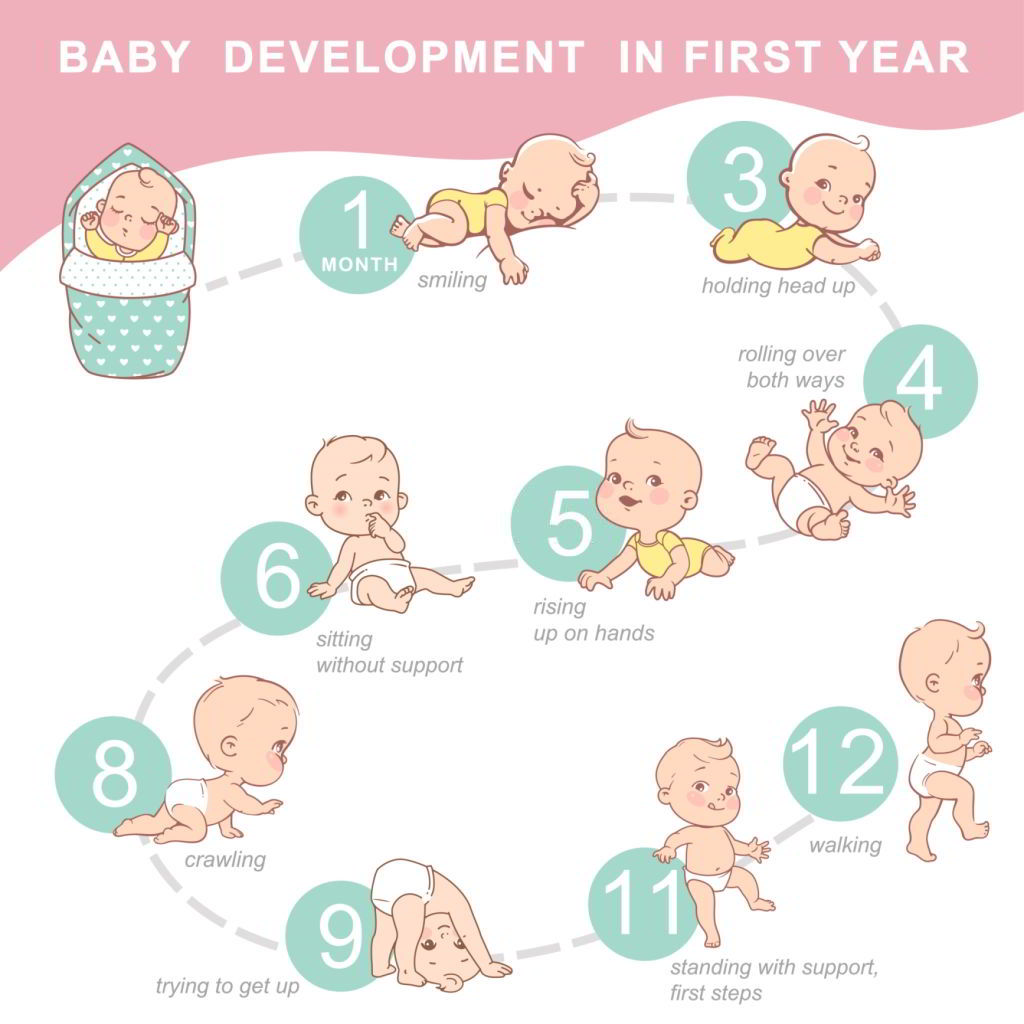 Source: bing.com
Source: bing.comAs a new parent, it can be overwhelming to think about your baby’s development. But don’t worry, there are simple things you can do to help your baby thrive at every stage. At 6 months old, your baby is growing and changing rapidly. In this article, we’ll explore how to develop a baby at age of 6 months.
Table of Contents
Physical Development
At 6 months old, your baby is likely starting to sit up on their own and may even be rolling over. You can encourage their physical development by giving them plenty of supervised tummy time. This will help strengthen their neck and shoulder muscles, which will in turn help them learn to sit up and crawl. You can also provide your baby with safe and age-appropriate toys to explore, such as soft blocks or rattles.
Sensory Development
Your baby’s senses are developing rapidly at 6 months old. They may be starting to understand cause and effect, and may enjoy exploring objects with their hands and mouth. You can help promote their sensory development by providing them with a variety of textures and sounds to explore, such as different fabrics or toys that make noise. Talking to your baby and making eye contact with them can also help with their cognitive and social development.
Social and Emotional Development
At 6 months old, your baby is starting to understand emotions and may be showing signs of separation anxiety. You can help promote their social and emotional development by providing plenty of love and affection, and by responding to their cries and needs. You can also encourage their development by playing games like peek-a-boo, which can help them learn about object permanence and cause and effect.
Language Development
Your baby is likely starting to babble and make sounds at 6 months old. You can help promote their language development by talking to them often and responding to their babbling. Reading books to your baby can also help with their language development, as well as with their cognitive and social development.
Nutrition
At 6 months old, your baby is likely starting to eat solid foods in addition to breast milk or formula. You can help promote their nutrition by introducing a variety of healthy foods, such as pureed fruits and vegetables. Be sure to talk to your pediatrician about the best foods and feeding schedule for your baby.
Conclusion
In conclusion, there are simple things you can do to help your baby develop at 6 months old. Providing plenty of love and attention, age-appropriate toys and activities, and a healthy diet can all contribute to your baby’s growth and development. Remember to talk to your pediatrician if you have any concerns about your baby’s development.
Frequently Asked Questions
Q: How often should I give my baby tummy time?
A: You should give your baby supervised tummy time several times a day, for short periods of time.
Q: How can I tell if my baby is ready to start solid foods?
A: Your baby may be ready to start solid foods if they are able to sit up with support, show interest in food, and have good head and neck control.
Q: How can I encourage my baby’s language development?
A: Talking to your baby often, responding to their babbling, and reading books to them can all help with their language development.
Q: What are some good age-appropriate toys for my 6-month-old?
A: Soft blocks, rattles, and toys with different textures and sounds are great options for your 6-month-old.
Q: How can I help my baby with separation anxiety?
A: Providing plenty of love and affection, responding to their cries and needs, and playing games like peek-a-boo can all help with your baby’s social and emotional development and ease separation anxiety.
